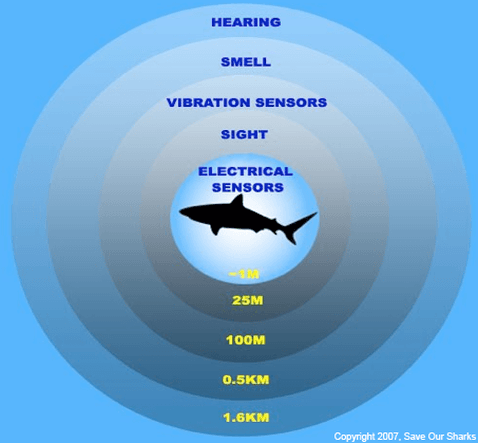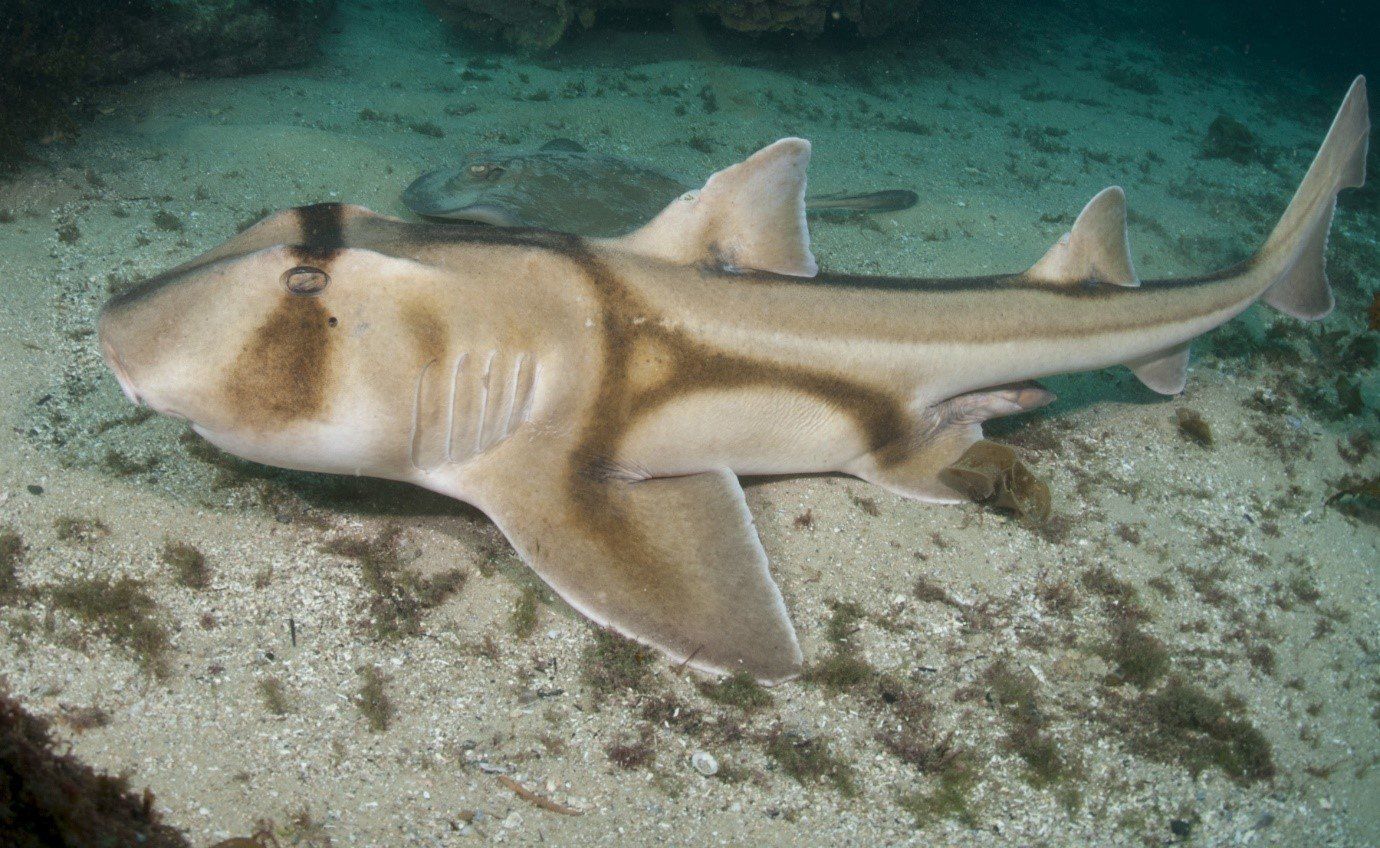The Effects of Climate Change on the Foraging Behaviour of Sharks.
By the end of this century the ocean temperature is predicted to rise by 1-3°C, and the pH will decrease by 0.3-0.4 units (Pörtner et al., 2014), due to the elevated levels of CO2, making the ocean more acidic. In general, elevated temperatures will elevate an animal’s basal metabolic rates and respiratory demands, which will lead to a decrease in the oxygen available for feeding, digestion, and predator avoidance.
The consequences of this could result in reduced energy for reproduction and growth (Portner and Knust, 2007). The elevation of CO2 has shown to affect physiology and behaviour of small marine fish (Munday et al., 2009; Nilsson et al., 2012), but little investigation has been conducted on larger vertebrates. Pistevos et al. (2015) wanted to investigate what effects ocean acidification and warming would have on a larger apex predator, the Port Jackson shark.
Sharks and other apex predators are important to the ecosystem as they can control abundance, distribution, and behaviour of prey species in lower trophic levels (Schmitz et al., 2004). The removal or weakening of these predators can therefore have a significant cascading effect on community composition.
Sharks are predators that rely highly on their olfactory senses when locating their prey. Nocturnal species rely solely on these senses, as they are not able to use vision in the dark. Elevated CO2 levels have been shown to impair the olfactory senses in bony fish (Munday et al., 2009), which lead to the initiative to study this effect in sharks as well.
Two shark species that have been studied are the smooth dogfish, Mustelus canis (Dixson et al., 2015) and the nocturnal Port Jackson shark, Heterodontus portusjacksoni (Pistevos et al., 2015). Both species showed a decrease in olfactory performance in conditions with elevated CO2 levels predicted for the end of this century.
Pistevos et al. (2015) also tested the effects of higher temperatures, and the combination of higher temperatures and elevated CO2. To create realistic results, sharks where held in mesocosms, which are mini versions of their natural environments. When the temperature was elevated, the sharks increased their food intake, while elevated CO2 levels increased the time sharks spent locating prey. Slower reaction time and higher failure rates compared to control treatments (with ambient temperature and CO2), were also recorded. The failure rate in locating prey in mesocosms with elevated CO2 was 50%, compared to 27% in mesocosms with ambient levels (Pistevos et al., 2015).
Climate change results in both elevated temperatures and CO2 levels. The combination of these two can create a challenge for the Port Jackson shark, and possibly other sharks. In time it could possibly lead to starvation, as higher temperatures increase energy demands, while higher CO2 levels decreases foraging success and prevents the shark from meeting these demands.
Sharks have slow reproduction rates, mature at a late age, and have long pregnancies. This results in a low population growth, and leaves them vulnerable to possible threats, such as climate change.
To conclude, increased temperature has proven to elevate energy demands in the Port Jackson shark, and elevated CO2 has been evidenced to impair olfaction in both the smooth dogfish and the Port Jackson shark. The combination of these environmental changes could therefore lead to a higher energy demand which is hard to meet, and eventually end in starvation. More studies on this topic is needed to see if these effects are common in other sharks and marine apex predators as well.
References :
Dixson, D.L., Jennings, A.R., Atema, J., Munday, P.L., (2015), Odor tracking in sharks is reduced under future ocean acidification conditions , Global Change Biology , Vol. 21, Issue 4, pp. 1454-1562
Pistevos, J.C.A., Nagelkerken, I., Rossi, T., Olmos, M., Connell, S.D., (2015), Ocean acidification and global warming impair shark hunting behaviour and growth, Scientific Reports, DOI: https://doi.org/10.1038/srep16293 Pörtner, H. O. et al. Ocean systems, Cambridge University Press, Cambridge, United Kingdom and New York NY, USA, pp 411–484 (2014).
Pörtner, H. O., Knust, R., (2007), Climate change affects marine fishes through the oxygen limitation and thermal tolerance, Science, Vol. 315, Issue 5808, pages 95-97
Images:
Schlogl, E., Heterodontus portusjacksoni (Port Jackson shark), Encyclopedia of Life, accessed: 05/06/2020, available at: https://eol.org/pages/1885/media?page=4
Robertson, D., Van Tassel, J., Mustelus canis, Smithsonian Tropical Research Institute, accessed: 05/06/2020, available at https://eol.org/pages/1885/media?page=4
SHARE THIS ARTICLE
















